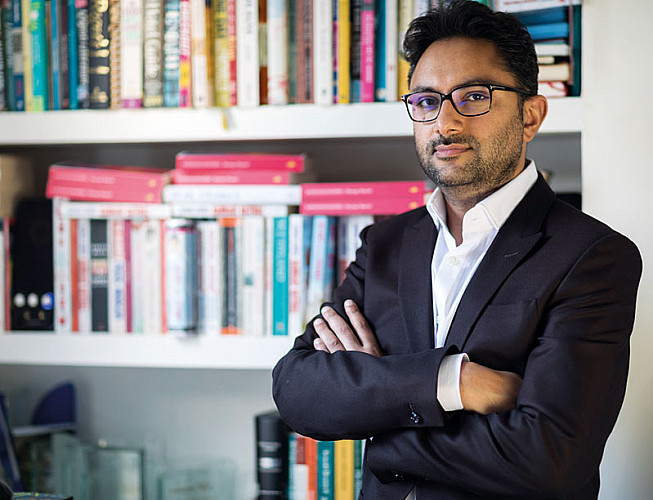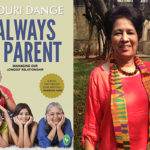Writer Sathnam Sanghera on Tapping Into Personal Experiences
He has made his mark with books such as The Boy with the Topknot: A Memoir of Love, Secrets, and Lies in Wolverhampton and Marriage Material. Whether autobiographical or fiction, Sathnam Sanghera has bravely spoken out about private experiences through the written word. His stories highlight camouflaged taboos and the suppressed experiences of second-generation immigrants juggling family, relationships and careers.
His first book The Boy with the Top Knot is being made into a BBC TV series, to be aired in 2017. In a conversation at The Arts Club in London’s Mayfair, we chatted about his views on life.
What urged you to become a writer?
“As a child I was good at maths, as all Indian immigrant kids usually are and I wanted to be a bank manager. You can only dream as far as you can see. After university I wanted to be an accountant, but two things happened. I used to read a lot, and when I was 15 my older brother encouraged me to enter this essay competition on Michael Jackson which Radio One was running. I ended up wining the prize, which was a trip to Los Angeles to see Michael Jackson perform. It thrilled me and exposed me to radio journalism. Then my local paper asked me to write for them, and that’s how it started. I think I fell in love with reading. One reads to know they are not alone.”
What aspects of the diaspora have you dealt with in your books?
“My first book was a family memoir and I cannot quite believe I did it. Looking back, I feel I was naive and made it intimate as I had never written a book before and assumed that no one would ever read it. Indians generally don’t talk about their families. A family memoir is more of a Western concept and I did not realise that till I had written the book. My second book was more about the history and sociology of British Asians in Britain. I feel the generation before me went through a great deal and it was very difficult, but they do not like talking about it and it has not been documented, which I think is a tragedy. It is the story of modern Britain, and it’s not just about Asians or Sikhs. It is about immigration and how Britain deals with its newcomers and highlights what happened in the ’60s and ’70s. I felt I had to do it. I am thinking about writing a book on the British Empire next.”
In your experience, how is the life of a journalist different from being a writer?
“Every day is a drama when you are a journalist. My day job is with The Times in London. Sometimes one can be at a dinner party and someone starts telling me a story that I wrote about in a newspaper and they tell it back to me as if it happened to a friend of theirs. And that’s weird and yet quite complimentary. I remember also when my first book came out and I was on the tube en route to the book launch, a young Indian man sitting next to me was reading my interview in Time Out London? and again it felt a bit weird but that has never happened again.
I don’t think many people realise that writers actually have to read a lot and someone once tweeted that they were going to write a book but then decided to read the whole of the internet! Writing is very lonely and someone is always trying to do it better than you. When one is not writing, one is still constantly thinking about it as it is part of the process. Writers often try to avoid writing but when they do, it is both engaging and tough and it defines them.”
Which authors do you admire?
“I have enjoyed reading books by the Edwardian writer Arnold Bennett, Junot Diaz, Jonathan Coe, Evelyn Waugh, Hanif Kureishi, William Boyd and Jhumpa Lahiri. I used to read for language and humour, but as I age my perspective has changed and I now read for humour and emotional insight.”
Related posts from Verve:
Verve Trending
Sorry. No data so far.
us on Facebook to stay updated with the latest trends






